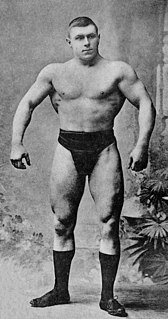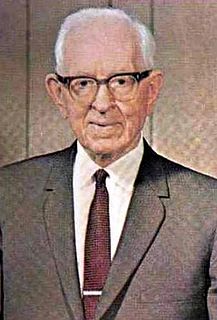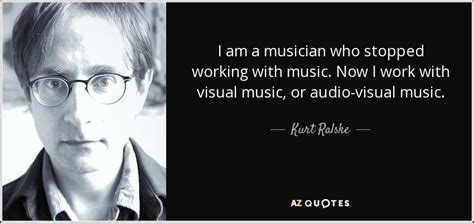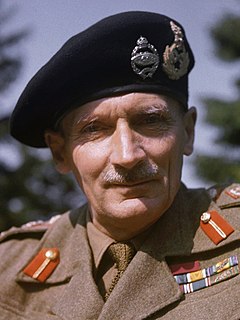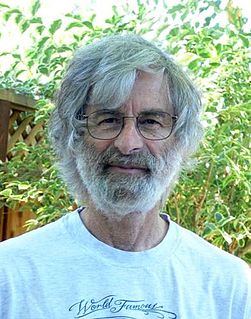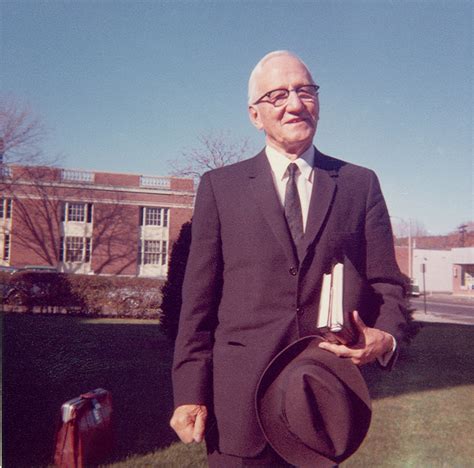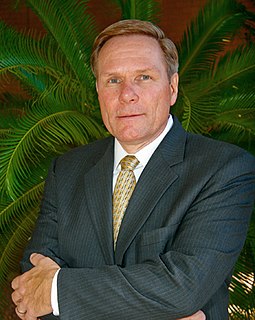Top 710 Tasks Quotes & Sayings - Page 12
Explore popular Tasks quotes.
Last updated on April 16, 2025.
Many abused children cling to the hope that growing up will bring escape and freedom. But the personality formed in an environment of coercive control is not well adapted to adult life. The survivor is left with fundamental problems in basic trust, autonomy, and initiative. She approaches the tasks of early adulthood-establishing independence and intimacy-burdened by major impairments in self-care, in cognition and memory, in identity, and in the capacity to form stable relationships. She is still a prisoner of her childhood; attempting to create a new life, she reencounters the trauma.
Do not consider any act of service as demeaning. Sweeping the streets, for example, is not below your dignity. Do you not sweep the floor of your homes? Do you not scrub and wash off dirt? When you undertake such tasks, the villagers will also gladly share in them. Why feel ashamed to be good? The ridicule that may be cast on you has been the reward of many saints. It will soon fade away. Muhammad was driven out of Mecca by those who could not appreciate his teachings. Jesus was crucified. But their names resound in the heart of millions.
It is said that the Christian mystic Theresa of Avila found difficulty at first in reconciling the vastness of the life of the spirit with the mundane tasks of her Carmelite convent: the washing of pots, the sweeping of floors, the folding of laundry. At some point of grace, the mundane became for her a sort of prayer, a way she could experience her ever-present connection to the divine pattern which is the source of life. She began then to see the face of God in the folded sheets.
Evil conquered?' said Gwydion. 'You have learned much, but learn this last and hardest of lessons. You have conquered only the enchantments of evil. That was the easiest of your tasks, only a beginning, not an ending. Do you believe evil itself to be so quickly overcome? Not so long as men still hate and slay each other, when greed and anger goad them. Against these even a flaming sword cannot prevail, but only that portion of good in all men's hearts whose flame can never be quenched.
Magic enables man to carry out with confidence his important tasks, to maintain his poise and his mental integrity in fits of anger, in the throes of hate, of unrequited love, of despair and anxiety. The function of magic is to ritualize man's optimism, to enhance his faith in the victory of hope over fear. Magic expresses the greater value for man of confidence over doubt, of steadfastness over vacillation, of optimism over pessimism.
Organizing time is exactly like organizing space. Just as a closet is a limited amount of space into which you must fit a certain number of objects, a schedule is a limited space into which you must fit a certain number of tasks. Each day and each week is simply a container, a storage unit with a definite capacity. The trick is to treat time not as an abstraction but as something solid that you can hold on to and move around.
That is the way we decided to talk, free and easy, two young men discussing a boxing match. That was the only way to talk. You couldn't let too much truth seep into your conversation, you couldn't admit with your mouth what your eyes had seen. If you opened the door even a centimeter, you would smell the rot outside and hear the screams. You did not open the door. You kept your mind on the tasks of the day, the hunt for food and water and something to burn, and you saved the rest for the end of the war.
The frequent employment of one's will power masters all organs of movement and trains them to perform feats which otherwise would have been difficult,painful and even impossible. The man becomes independent and self-reliant; he will never be a coward,and, when real danger threatens,he is the one who is looked up to by others. The knowledge of one's strength entails a real mastery over oneself; it breeds energy and courage,helps one over the most difficult tasks of life, and procures contentment and true enjoyment of living.
Read Becoming a Writer by Dorothea Brande. Then do what it says, including the tasks you think are impossible. You will particularly hate the advice to write first thing in the morning, but if you can manage it, it might well be the best thing you ever do for yourself. This book is about becoming a writer from the inside out. Many later advice manuals derive from it. You don't really need any others, though if you want to boost your confidence, "how to" books seldom do any harm. You can kick-start a whole book with some little writing exercise.
Few tasks are more like the torture of Sisyphus than housework, with its endless repetition: the clean becomes soiled, the soiled is made clean, over and over, day after day. The housewife wears herself out marking time: she makes nothing, simply perpetuates the present … Eating, sleeping, cleaning – the years no longer rise up towards heaven, they lie spread out ahead, grey and identical. The battle against dust and dirt is never won.
When we complain of having to do the same thing over and over, let us remember that God does not send new trees, strange flowers and different grasses every year. When the spring winds blow, they blow in the same way. In the same places the same dear blossoms lift up the same sweet faces, yet they never weary us. When it rains, it rains as it always has. Even so would the same tasks which fill our daily lives put on new meanings if we wrought them in the spirit of renewal from within--a spirit of growth and beauty.
Education is a technology that tries to make up for what the human mind is
innately bad at. Children don't have to go to school to learn how to walk,
talk, recognize objects, or remember the personalities of their friends,
even though these tasks are much harder than reading, adding, or
remembering dates in history. They do have to go to school to learn written
language, arithmetic, and science, because those bodies of knowledge and
skill were invented too recently for any species-wide knack for them to
have evolved.
In every age states of varying size and constitution and at every level of development have found naval warfare to be one of their most formidable and expensive tasks. Ships have always been large, costly and complicated, and warships much more complicated and costly than any others. Scholars are nowadays inclined to emphasize the power, wealth and sophistication of the Anglo-Saxon kingdoms, and there is not more striking illustration of this than the advanced and elaborate administrative structures of the early English navy.
I also think that employees these days expect less of a separation of work and personal life. That doesn't mean that work tasks should encroach upon our personal time, but it does mean that employees today expect more from the companies for whom they work. Why shouldn't your workplace reflect your values? Why is "giving back" not a part of our jobs? The answer for us is to integrate philanthropy with work.
How was it that, even in the common tasks of an ordinary life, Jesus drew the praise of heaven? At the core of His being, He only did those things which pleased the Father. In everything, He stayed true, heartbeat to heartbeat, with the Father's desires. Jesus lived for God alone; God was enough for Him. Thus, even in its simplicity and moment-to-moment faithfulness, Christ's life was an unending fragrance, a perfect offering of incomparable love to God.
When we consider that each of us has only one life to live, isn’t it rather tragic to find men and women, with brains capable of comprehending the stars and the planets, talking about the weather; men and women, with hands capable of creating works of art, using those hands only for routine tasks; men and women, capable of independent thought, using their minds as a bowling-alley for popular ideas; men and women, capable of greatness, wallowing in mediocrity; men and women, capable of self-expression, slowly dying a mental death while they babble the confused monotone of the mob?
Run for your lives-the computers are invading. Awesomely powerful computers tackling ever more important tasks with awkward, old-fashioned interfaces. As these machines leak into every corner of our lives, they will annoy us, infuriate us, and even kill a few of us. In turn, we will be tempted to kill our computers, but we won't dare because we are already utterly, irreversibly dependent on these hopeful monsters that make modern life possible.
Adults constantly raise the bar on smart children, precisely because they're able to handle it. The children get overwhelmed by the tasks in front of them and gradually lose the sort of openness and sense of accomplishment they innately have. When they're treated like that, children start to crawl inside a shell and keep everything inside. It takes a lot of time and effort to get them to open up again. Kids' hearts are malleable, but once they gel it's hard to get them back the way they were.
I'm not talking about blind optimism, the kind of hope that just ignores the enormity of the tasks ahead or the road blocks that stand in our path. I'm not talking about the wishful idealism that allows us to just sit on the sidelines or shirk from a fight. I have always believed that hope is that stubborn thing inside us that insists, despite all the evidence to the contrary, that something better awaits us so long as we have the courage to keep reaching, to keep working, to keep fighting.
To love is good, too: love being difficult. For one human being to love another: that is perhaps the most difficult of all our tasks, the ultimate, the last test and proof, the work for which all other work is but preparation. Love is a high inducement to the individual to ripen, to become something in himself, to become world for himself for another's sake, it is a great exacting claim upon him, something that chooses him out and calls him to vast things.
To do well those thing which God ordained to be the common lot of all man-kind, is the truest greatness. To be a successful father or a successful mother is greater than to be a successful general or a successful statesman... We should never be discouraged in those daily tasks which God has ordained to the common lot of man... Let us not be trying to substitute an artificial life for the true one.
The pleasant converse of the fireside, the simple songs of home, the words of encouragement as I bend over my school-tasks, the kiss as I lie down to rest, the patient bearing with the freaks of my restless nature, the gentle counsels mingled with reproofs and approvals, the sympathy that meets and assuages every sorrow, and sweetens every little success--all these return to me amid the responsibilities which press upon me now, and I feel as if I had once lived in heaven, and, straying, had lost my way.
He comes to us as One unknown, without a name, as of old, by the lakeside, He came to those men who knew Him not. He speaks to us the same words: "Follow thou me!" and sets us to the tasks which He has to fulfill for our time. He commands. And to those who obey Him, whether they be wise or simple, He will reveal himself in the toils, the conflicts, the sufferings which they shall pass through in His fellowship, and, as an ineffable mystery, they shall learn in their own experience Who He is.
Europe has been at peace since 1945. But it is a restless peace thats shadowed by the threat of violence. Europe is partitioned. An unnatural line runs through the heart of a very great and a very proud nation [Germany]. History warns us that until this harsh division has been resolved, peace in Europe will never be secure. We must turn to one of the great unfinished tasks of our generationand that unfinished task is making Europe whole again.
Humans were still not only the cheapest robots around, but also, for many tasks, the only robots that could do the job. They were self-reproducing robots too. They showed up and worked generation after generation; give them 3000 calories a day and a few amenities, a little time off, and a strong jolt of fear, and you could work them at almost anything. Give them some ameliorative drugs and you had a working class, reified and coglike.
A laugh lifestyle is predicated upon our attitude toward the daily stuff of life. When those tasks seem too dull to endure, figure out a way to make them fun; get creative and entertain yourself. If the stuff of life for you right now is not dull and boring but instead painful and overwhelming, find something in the midst of the pain that makes you smile or giggle anyway. There's always something somewhere. . . even if you have to just pretend to laugh until you really do!
I was a musician who began playing with computers, to see if they could make some tasks simpler. I developed some "tricks" or strategies for working with audio files, and then discovered that the same tricks could be applied to video files, or really, any type of data. Previously I made many different kinds of music. I did some work as a composer of film scores. In that role, my task was to create audio to match and deepen the visual. In my work now, the role is often reversed: I have to create images to match and deepen the audio.
For example, the supporters of tariffs treat it as self-evident that the creation of jobs is a desirable end, in and of itself, regardless of what the persons employed do. That is clearly wrong. If all we want are jobs, we can create any number--for example, have people dig holes and then fill them up again, or perform other useless tasks. Work is sometimes its own reward. Mostly, however, it is the price we pay to get the things we want. Our real objective is not just jobs but productive jobs--jobs that will mean more goods and services to consume.
The difficult tasks to be performed are not the ones that mean physical and mental labor, but the ones that you dislike, are the ones that you do not love. There are unpleasant angles to nearly every important job to be done in this world, but there must be an over all love for doing each, else precious time and effort are uselessly wasted. I shall never forget noting a sign above a construction job that read: "Builder of Difficult Foundations." That man must have loved that calling, else he would not have made a point of advertising the fact!
Internationalism is a community theory of society which is founded on economic, spiritual, and biological facts. It maintains that respect for a healthy development of human society and of world civilization requires that mankind be organized internationally. Nationalities should form the constitutive links in a great world alliance, and must be guaranteed an independent life in the realm of the spiritual and for locally delimited tasks, while economic and political objectives must be guided internationally in a spirit of peaceful cooperation for the promotion of mankind's common interests.
We must be ready to allow ourselves to be interrupted by God, who will thwart our plans and frustrate our ways time and again, even daily, by sending people across our path with their demands and requests. We can, then, pass them by, preoccupied with our important daily tasks, just as the priest-perhaps reading the Bible-passed by the man who had fallen among robbers. When we do that, we pass by the visible sign of the Cross raised in our lives to show us that God’s way, and not our own, is what counts.
The enemy often tries to make us attempt and start many projects so that we will be overwhelmed with too many tasks, and therefore achieve nothing and leave everything unfinished. Sometimes he even suggests the wish to undertake some excellent work that he foresees we will never accomplish. This is to distract us from the prosecution of some less excellent work that we would have easily completed. He does not care how many plans and beginnings we make, provided nothing is finished.
It did not really matter what we expected from life, but rather what life expected from us. We needed to stop asking about the meaning of life, and instead to think of ourselves as those who were being questioned by life—daily and hourly. Our answer must consist, not in talk and meditation, but in right action and in right conduct. Life ultimately means taking the responsibility to find the right answer to its problems and to fulfill the tasks which it constantly sets for each individual.
In his or her life, each person can take one of two attitudes: to build or to plant. Builders may take years over their tasks, but one day they will finish what they are doing. Then they will stop, hemmed in by their own walls. Life becomes meaningless once the building is finished. Those who plant suffer the storms and the seasons and rarely rest. Unlike a building, a garden never stops growing. And by its constant demands on the gardner's attentions, it makes of the gardener's life a great adventure.
Commercial interests with their advertising industry do not want people to develop contentment and less greed. Military interests in economic, political, ethnic or nationalist guises, do not want people to develop more tolerance, nonviolence and compassion. And ruling groups in general, in whatever sort of hierarchy do not want the ruled to become too insightful, too independent, too creative on their own, as the danger is that they will become insubordinate, rebellious, and unproductive in their alloted tasks.
So your desire is to do nothing? Well, you shall not have a week, a day, an hour, free from oppression. You shall not be able to lift anything without agony. Every passing minute will make your muscles crack. What is feather to others will be a rock to you. The simplest things will become difficult. Life will become monstrous about you. To come, to go, to breathe, will be so many terrible tasks for you. Your lungs will feel like a hundred-pound weight.
The Sappers really need no tribute from me; their reward lies in the glory of their achievement. The more science intervenes in warfare, the more will be the need for engineers in field armies; in the late war there were never enough Sappers at any time. Their special tasks involved the upkeep and repair of communications; roads, bridges, railways, canals, mine sweeping. The Sappers rose to great heights in World War II and their contribution to victory was beyond all calculations.
There is a race between the increasing complexity of the systems we build and our ability to develop intellectual tools for understanding their complexity. If the race is won by our tools, then systems will eventually become easier to use and more reliable. If not, they will continue to become harder to use and less reliable for all but a relatively small set of common tasks. Given how hard thinking is, if those intellectual tools are to succeed, they will have to substitute calculation for thought.
...One of the most important lessons, perhaps, is the fact that SOFTWARE IS HARD. From now on I shall have significantly greater respect for every successful software tool that I encounter. During the past decade I was surprised to learn that the writing of programs for TeX and Metafont proved to be much more difficult than all the other things I had done (like proving theorems or writing books). The creation of good software demand a significiantly higher standard of accuracy than those other things do, and it requires a longer attention span than other intellectual tasks.
All too often we say of a man doing a good job that he is indispensable. A flattering canard, as so many disillusioned and retired and fired have discovered when the world seems to keep on turning without them. In business, a man can come nearest to indispensability by being dispensable in his current job. How can a man move up to new responsibilities if he is the only one able to handle his present tasks? It matters not how small or large the job you now have, if you have trained no one to do it as well, you're not available; you've made your promotion difficult if not impossible.
Deep attention, the cognitive style traditionally associated with the humanities, is characterized by concentrating on a single object for long periods (say, a novel by Dickens), ignoring outside stimuli while so engaged, preferring a single information stream, and having a high tolerance for long focus times. Hyper attention is characterized by switching focus rapidly among different tasks, preferring multiple information streams, seeking a high level of stimulation, and having a low tolerance for boredom.
Do each day all that can be done that day. You don't need to overwork or to rush blindly into your work trying to do the greatest possible number of things in the shortest possible time. Don't try to do tomorrow's or next week's work today. It's not the number of things you do, but the quality, the efficiency of each separate action that count. To achieve this "habit of success," you need only to focus on the most important tasks and succeed in each small task of each day.
Spirituality is best manifested on the ground, not in the air. Rapturous day-dreams, flights of heavenly fancy, longings to see the Invisible, are less expensive and less expressive than the plain doing of duty. To have bread excite thankfulness and a drink of water send the heart to God is better than sighs for the unattainable. To plow a straight furrow on Monday or dust a room well on Tuesday or kiss a bumped forehead on Wednesday is worth more than the most ecstatic thrill under Sunday eloquence. Spirituality is seeing God in common things, and showing God in common tasks.
Donald Trump runs the country like he ran "The Apprentice." The premise of "The Apprentice" is a crazy rich guy has his daughter and his son oversee celebrities doing tasks. And then they come back to him, and they tell him how they did. So in every episode he's like, how did - how'd Meatloaf do, Ivanka? And then she says, Meatloaf really did a great presentation. And then he makes some impulsive decision about who to fire based on not being there, not really even understanding anything.
While love takes on itself impossible tasks, yet it finds that love lightens all loads. It is the same burden that wings are to a bird, that sails are to a ship. Nothing is hard if done for love's sweet sake. The yoke of love is easy; the yoke of duty is hard. There is all the difference in the world between being drawn by love and being driven by duty. The task may be the same, but love makes everything light, and duty makes everything drudgery.
No matter the organization, the goal, or the mission, you've got to do it through people. It's been that way for me since my first command. I work to understand the people, their views and needs, and how tasks are being carried out.That interaction might cause me to modify my guidance or the way I delegate. It also affords me an opportunity to learn what goals people have and how as their boss I can facilitate their future in ways that not only help them, but also help the ship or the organization.
Although humans today remain more capable than machines for many tasks, by 2030 machine capabilities will have increased to the point that humans will have become the weakest component in a wide array of systems and processes. Humans and machines will need to become far more closely coupled, through improved human-machine interfaces and by direct augmentation of human performance
Why, since man and woman were created for each other, had He made their desires so dissimilar? Why should one class of women be able to dwell in luxurious seclusion from the trials of life, while another class performed their loathsome tasks? Surely His wisdom had not decreed that one set of women should live in degradation and in the end should perish that others might live in security, preserve their frappeed chastity, and in the end be saved.
The bourgeois thinkers of the eighteenth century thus turned Aristotle's formula on its head: satisfactions which the Greek philosopher had identified with leisure were now transposed to the sphere of work, while tasks lacking in any financial reward were drained of all significance and left to the haphazard attentions of decadent dilettantes. It now seemed as impossible that one could be happy and unproductive as it had once seemed unlikely that one could work and be human.
The overall "look, this is the one way to live" approach to this individual who is clearly living a happy life, who is clearly completely satisfied with and fulfilled by the tasks that he was able to complete every day, like eating, healing his own wounds, doctoring himself and whatever. And then this voice says, "Look, your life is inadequate. This is the way you need to live." Giving that depiction of the subversive methods by which our way of life creeps into our own psyche and eliminates alternatives. That's what happens.







